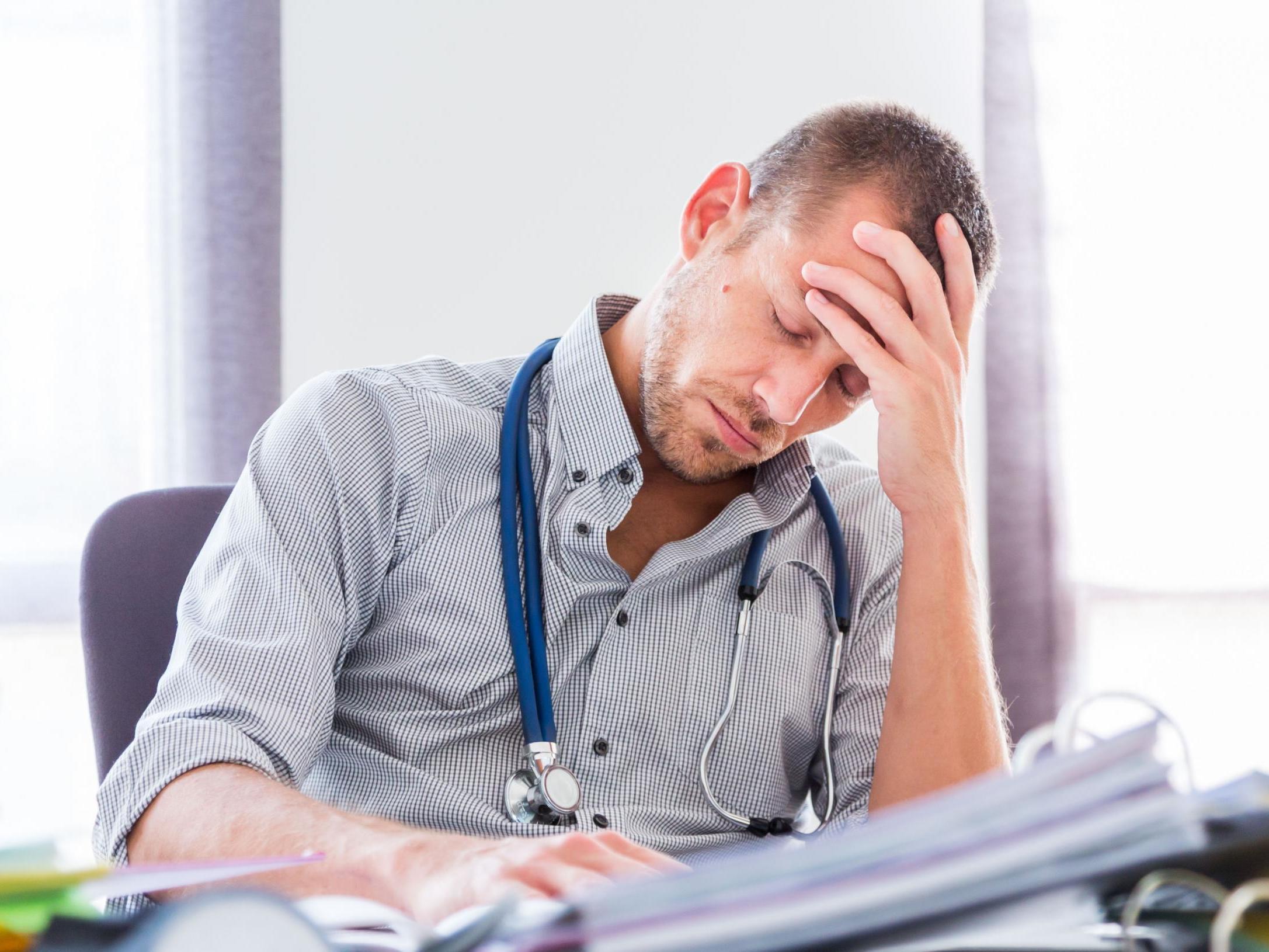GP vacancies rise to record levels despite recruitment pledge, survey suggests
Long patient waits and unsafe, rushed appointments are unlikely to end any time soon as vacancies have risen from 9.1 per cent to 15.3 per cent since the government pledged 5,000 more doctors

Your support helps us to tell the story
From reproductive rights to climate change to Big Tech, The Independent is on the ground when the story is developing. Whether it's investigating the financials of Elon Musk's pro-Trump PAC or producing our latest documentary, 'The A Word', which shines a light on the American women fighting for reproductive rights, we know how important it is to parse out the facts from the messaging.
At such a critical moment in US history, we need reporters on the ground. Your donation allows us to keep sending journalists to speak to both sides of the story.
The Independent is trusted by Americans across the entire political spectrum. And unlike many other quality news outlets, we choose not to lock Americans out of our reporting and analysis with paywalls. We believe quality journalism should be available to everyone, paid for by those who can afford it.
Your support makes all the difference.A record 15.3 per cent of GP posts in the UK are unfilled, suggesting government pledges to address soaring waiting times for GP appointments by recruiting more thousands more doctors have fallen flat.
In England, which has 33,574 full-time GPs as of March 2018 according to NHS statistics, the figures show a vacancy rate of 15.8 per cent suggesting more than 6,000 full-time GP posts advertised and currently unfilled.
The data collected by the magazine for GPs, Pulse, in a survey of 660 UK family doctors follows reports of patients being told they can only book GP appointments for urgent conditions, amid millions finding it harder to see their GP.
The increasing pressure for appointments could well be explained by these growing vacancies. Unfilled posts increased from 12.2 per cent when the survey was conducted in 2017 and have risen by a third since 2015 – the year health secretary Jeremy Hunt pledged he would recruit 5,000 full-time GPs by 2020.
Mr Hunt is currently 6,000 GPs further away from that target than when he started, the latest official NHS data shows.
These waits and the pressures on fewer doctors to see more patients also pose a safety risk to patients, with some reports suggesting doctors are seeing three times the safe daily limit of patients.
Professor Helen Stokes-Lampard, chair of the Royal College of GPs, warned overstretched doctors were more prone to burnout and mistakes.
She said of the Pulse data: “Almost every surgery in England is now one GP short, at least, and the implications of this are very serious for the wellbeing of our GPs and wider practice teams, and for the provision of safe, high-quality patient care.”
NHS England said the survey conducted by Pulse accounted for just over one per cent of the 41,000 GPs in England and had not taken steps to ensure the data was representative of the population.
It said it has committed to training more GPs and launched a £100m scheme to recruit thousands from overseas to address the shortfall, as well as expanding the numbers of nurses, physiotherapists to work in practices.
However, the last official data from the NHS dates back to 2011 – when the vacancy rate was just 2.1 per cent.
Pulse’s 2012 survey recorded a vacancy rate of 4.2 per cent, and has reported a steady increase in staffing gaps in the past seven years.
“The Pulse survey, although it’s got some flaws and limitations, it does support the evidence we’ve got and what GPs across the country have expressed,” Professor Azeem Majeed a professor of primary care at Imperial College London, told The Independent.
“They put an advert out and no one replies in places like the East Midlands, Hull and the North East where it’s very difficult to recruit.”
“It also ties in with reports from patients who often now complain there is a wait of a few weeks to get an appointment with a GP,” he added.
Last year Professor Majeed published work in the British Medical Journal which suggested the 5,000 figure proposed by the government was half what was needed in 2015. More than 12,000 extra GPs would be needed under the current system if the NHS is to have a hope of bringing down waiting times for patients.
A spokesperson for NHS England said: “With around 41,000 GPs working in England this self-selecting survey of 567 [English GP] responses represents a tiny and unrepresentative sample of a profession that is the bedrock of the NHS.
“Across England more than 3,000 GPs have entered training this year, 1,500 new medical school places are being made available and we are recruiting an extra 2,000 overseas doctors.
“At the same time, there are 3,900 more health professionals like nurses and pharmacists than two years ago, working alongside GPs and an additional £2.4bn every year by 2021.”
The report comes the day after the NHS celebrated its 70th anniversary for which Theresa May, the prime minister, pledged to increase its budget by £20bn in the next five years.
Join our commenting forum
Join thought-provoking conversations, follow other Independent readers and see their replies
Comments